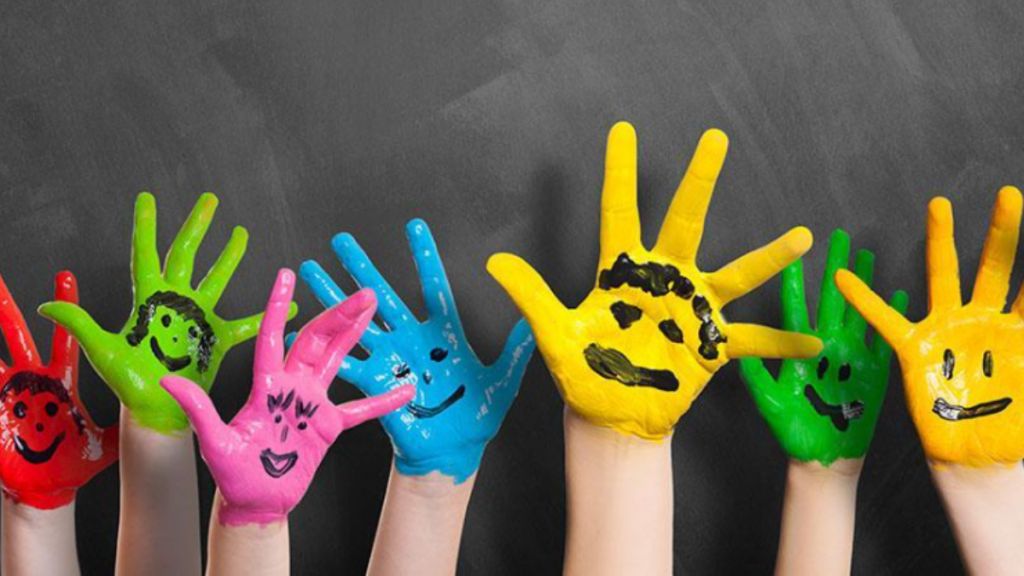
Classmate bonds play a vital role in shaping children's social and emotional development. From a young age, children spend a significant amount of time with their peers at school. These friendships help them learn how to communicate, share, and collaborate, all of which are important social skills.
A study highlighted by UNESCO shows that fostering relationships among classmates contributes to a more inclusive school environment, enhancing social-emotional learning (SEL) outcomes. This blog will explore how strong classmate connections shape emotional resilience, reduce stress, and promote better mental health.
What are the benefits of classmate bonds?
Classmate bonds are more than just friendships – they’re key to growing up!
When children feel close to their classmates, they gain confidence, deal with stress better, and are more willing to solve problems. These connections also make school a fun and supportive place, where everyone can grow socially and emotionally. Here are the top 4 major benefits of developing strong classmate bonds:
Social development
Friends help children feel more comfortable in social situations, which promotes better participation in both academic and extracurricular activities. Check the following:
● Developing Social Skills: By interacting with peers, children practice listening, expressing their ideas, sharing, and solving problems together. These experiences teach children how to communicate effectively and build strong relationships, which are important for their future.
● Learning About Different Cultures: Interacting with peers from diverse backgrounds broadens their understanding of the world, helps them appreciate differences and fosters tolerance. When children learn to respect and celebrate diversity, they become more open-minded and accepting individuals.
● Importance of Friends in Class: Friendships provide emotional support, boost confidence, and create a sense of belonging. These connections boost children’s confidence and make them feel like they belong. When children feel accepted by their peers, they are more likely to engage in class and enjoy their learning experience.
Emotional development
Classmates can help each other develop important skills like empathy, self-awareness, and self-regulation. Here’s how classmates contribute to emotional development:
● Building Emotional Intelligence: When children interact with each other, they practice empathy by understanding how others feel. For example, if a friend is sad, a child learns to recognize those feelings and respond with kindness.
● Providing Emotional Support: Classmates offer emotional support during difficult times. When a child faces challenges, like struggling with schoolwork or feeling left out, friends can provide comfort. This support can be as simple as listening or offering words of encouragement.
● Importance of Positive Relationships: Friendly interactions create a safe and supportive environment where children can express themselves without fear of judgment. These relationships promote happiness, reduce anxiety, and foster a sense of belonging, all of which are essential for healthy emotional growth.
Academic development
Positive relationships with classmates can greatly affect children's academic success. Here’s how these bonds contribute to their learning and performance in school:
● Boosting Academic Achievement: Working together with friends on projects or study groups can enhance their understanding of subjects. A survey by the National Institute of Educational Planning and Administration in India found that 72% of students reported better academic performance when they had supportive friendships in class.
● Increasing Motivation to Learn: When children see their friends excited about a lesson or project, they are likely to feel the same way. Friends can encourage each other to try their best and stay engaged with their schoolwork.
● Feeling Supported and Engaged: A report from the Ministry of Education in India showed that students with strong social connections reported a 30% increase in their overall school engagement. This shows that such support helps children cope with challenges, such as difficult subjects or stress from exams.
Impact of social interactions on children:
Recent research by the National Library of Medicine shows that social interactions greatly shape a child's development. Children learn how to communicate, cooperate, and build relationships when interacting with others. These experiences teach them how to work in groups, share, and resolve conflicts, which are important life skills. Positive social interactions also lead to greater emotional resilience, helping children manage stress and develop empathy.
A survey from IDR (2023) shows that children involved in social-emotional learning programs demonstrated a 10-20% improvement in emotional regulation and peer relationships. This data highlights the critical role social interactions play in a child's overall development.
You can also read: Importance of classmates in school
Tips for teachers to foster positive relationships with classmates:
According to the self-determination theory, supportive and appreciative relationships among classmates guided by teachers can develop positive attitudes towards school and improve self-esteem.
Here are some teacher’s tips to support positive interactions among students:
Encourage Open Communication
Ask students about their school experiences. Let them share challenges or successes to build trust and create a supportive environment.Organize Group Activities
Plan group projects or discussions in class. These activities encourage teamwork, allowing students to interact and understand each other better.Promote After-School Interactions
Suggest group study sessions or community activities outside of school. This helps students bond in informal settings.Model Positive Behavior
Demonstrate respectful and kind interactions. Your actions set an example for students to follow.Teach Conflict Resolution
Help students resolve disagreements peacefully. This fosters a positive and respectful atmosphere.
Conclusion
Bond with classmates is crucial for children's social and emotional development, helping them improve communication and teamwork skills. A well-designed teacher-training program can help teachers form strategies to foster these bonds through open discussions, group activities, and outside-school interactions. However, implementing such programs requires additional funding. That’s where schools can count on trusted partners like Varthana. By providing financial support, Varthana ensures that schools have the resources and infrastructure needed to foster student development effectively.
Disclaimer: This is a syndicated feed. The article is not edited by the FPJ editorial team.